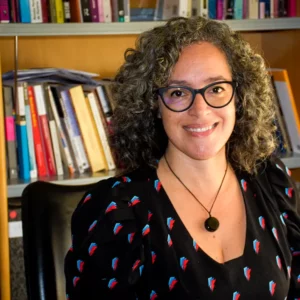
With a background in Sociology and a PhD in Gender Studies, Ana Cristina Santos is Principal Researcher with Habilitation at the Centre for Social Studies, University of Coimbra (CES-UC). At CES-UC she is Chair of the Democracy, Justice and Human Rights Thematic Line and co-Director of the Sexualities Research Group – GPS. She published extensively and coordinated a number of research projects on LGBTQI+ issues, dissident embodiment, intimate citizenship and queer ageing, including two European Research Council Grant Awards. She currently leads three research projects: Colourful Childhoods, funded by the European Commission; REMEMBER, funded by FCT; and TRACE, funded by the ERC, centred on the ageing of LGBTQ+ people in Southern Europe. In 2021, she was elected for the Executive Committee of the European Sociological Association until 2024. Her most recent books are The SAGE Handbook of Global Sexualities (Sage, 2020); The Tenacity of the Couple Norm (UCL Press, Open Access, 2020); and LGBTQ+ Intimacies in Southern Europe: Citizenship, Care and Choice (Palgrave, Open Access, 2022).
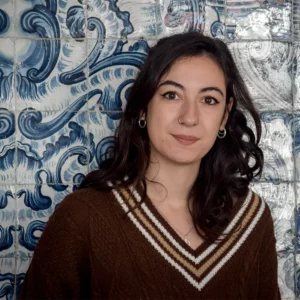
Graduated in Psychology from the University of Cagliari (IT) and junior researcher at the Centre for Social Studies of the University of Coimbra (CES). Hold a master’s degree in Clinical Psychology (2022), with a dissertation entitled “The Manosphere in Italy: critical analysis of sexist discourses in online male communities”, a ethnographic and a critical discourse analysis research. Currently part of the TRACE project – Tracing Queer Citizenship over Time: Ageing, ageism and age-related LGBTI+ politics in Europe.
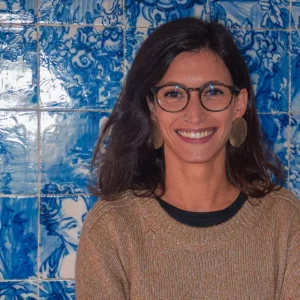
Post-doctoral researcher at the project TRACE- Tracing Queer Citizenship over Time: Ageing, ageism and age-related LGBTI+ politics in Europe, at the Centre for Social Studies (CES), University of Coimbra. She holds a BA in Anthropology, a MSc in Biology and Human Evolution, and a PhD in Human Rights in Contemporary Societies from the University of Coimbra, with a thesis entitled “The Insular Efect: LGBTQ people’s experiences through the lens of geographical isolation” – available at: https://estudogeral.uc.pt/handle/10316/109946. In 2022/23 she was granted a research scholarship for the project Multiversity- White book on multiple and intersectional discrimination, promoted by NOVA School of Law, Lisbon. She is also an associated researcher at the project REMEMBER- Vivências de pessoas LGBTQ Idosas no Portugal Democrático (1974-2020) and a collaborator at project Colourful Childhoods- Empowering LGBTIQ children in vulnerable contexts to combat gender-based violence across Europe, both at the Centre for Social Studies, Coimbra. She works in LGBTQ studies and Human Rights, through a critical and intersectional approach, with particular research interest in geographies of sexualities, island studies and rural queer studies.
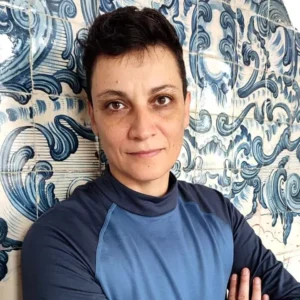
Post-doctoral researcher at the project TRACE- Tracing Queer Citizenship over Time: Ageing, ageism and Age-related LGBTI+ Politics in Europe, at the Centre for Social Studies (CES), University of Coimbra. He specialises in the interdisciplinary field of gender and sexuality studies as a social anthropologist, with a focus on Greek ethnography. His Thesis entitled “BDSM practices, sexualities, socialities: Anthropological Approaches” presents a rigorous ethnographic exploration of BDSM social and sexual networks in contemporary Greece. During the past decade, he has conducted ethnographic research on gender and sexuality policies related to same-sex parenting and the uses of new reproductive technologies. They have also explored the intersection of politics of desire with queer kinship activism and theories, and examined forms of institutional violence within SOGI asylum policies in Greece. He has published several articles in both international and Greek scientific journals and has contributed to numerous volumes within the field. He also served as a co-editor, alongside Dr. Eirini Avramopoulou, for a scientific collection entitled “Sexuality’s Object(ion)s:”. Critical theories and interdisciplinary readings” published in Greek in 2022. Pako is a founding member of the Association of Social Anthropologists in Greece.
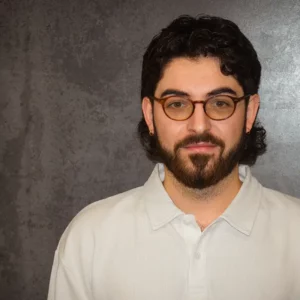
Sociologist and Junior Researcher at the Centre for Social Studies of the University of Coimbra (CES). Holds a Master’s degree in International Relations – Peace, Security and Development Studies from the Faculty of Economics of the University of Coimbra (2022), with a Dissertation entitled “Queer Real Utopias: Violence and Resistance in a Heterocisnormative World”, and a Bachelor’s degree in Sociology (2019) from the same University. Research Manager at the TRACE project – Tracing Queer Citizenship over Time: Ageing, ageism and age-related LGBTI+ politics in Europe. He collaborated with the REPLAY project – Approaches to Peace and the (re)production of violence in Mozambique (2022-2023) and with the TIMES project – Institutional trajectories and social enterprise models in Portugal (2019-2021). He is a researcher in collaboration with project REMEMBER – Experiences of Older LGBTQ People in Democratic Portugal (1974-2020) and a member of the Research Group on Sexualities at CES (GPS-CES). He is co-coordinator of the Sexuality and Gender Thematic Section of the Portuguese Sociological Association (APS). His research interests include queer theories, methodologies and studies, peace and violence studies, LGBTQIA+ rights, violence and resistance, LGBTQIA+ organisations, and social enterprises.

Since obtaining his Master’s degree in Social Work, he has been a teaching assistant and researcher at the Faculty of Social Work, University of Ljubljana, Slovenia. His research interests include social work in healthcare organizations, professional identity of social workers, interprofessional collaboration and LGBTI+ studies. His previous work includes publications of systematic reviews on topics related to LGBTI+ older adults including the concept of resilience and the effects of trainings on social and healthcare professionals working providing care to LGBTI+ older adults. Previously he collaborated on two European LGBTI+ projects: Diversity and Childhood: Changing social attitudes towards gender diversity in children across Europe and Best practices for Care and Wellbeing Education to support the needs of LGBT people as they age – BEING ME.
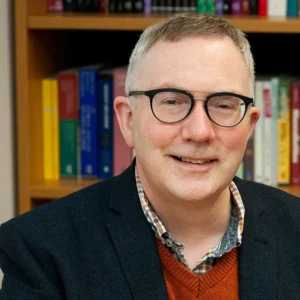
Andrew King is a Professor of Sociology at the University of Surrey, UK and co-director of the ‘Centre for Research on Ageing and Generations’ (CRAG), the ‘Sex, Gender and Sexualities Research Group’ (SGS) and a founding Co-Director of Surrey’s new Centre for Excellence on Ageing. He is an expert on LGBTQ+ ageing. His books include: Older Lesbian, Gay and Bisexual Adults: Identities, Intersections and Institutions (Routledge 2016), Older LGBT People: Minding the Knowledge Gaps (Routledge, 2018) and Intersections of Ageing, Gender and Sexualities: Multidisciplinary International Perspectives (Policy Press, 2019). Andrew specialises on housing amongst LGBTQ+ people and he established the UK’s first social housing national LGBTQ+ equality framework, the HousePoud Pledge Scheme. Andrew currently edits the journals Ageing and Society and Sociology and is in ‘insight expert’ for the International Longevity Centre.
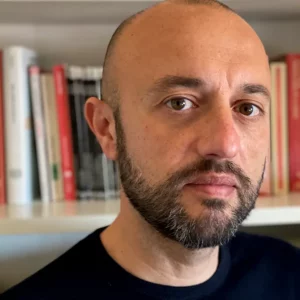
Diego Lasio holds a PhD in Psychology from ISCTE – Instituto Universitário de Lisboa, Portugal. He holds a Master’s degree in Psychology from the University of Cagliari (Italy) and specialised in Systemic-Relational Psychotherapy at the Academy of Family Psychotherapy in Rome (Italy). He works at the University of Cagliari (Italy) where he teaches Psychology of Family Relations and Gender, Sexuality and Intersectionality. His research focuses on the discursive construction of gender and sexuality, analysing the related social practices of marginalisation and discrimination.
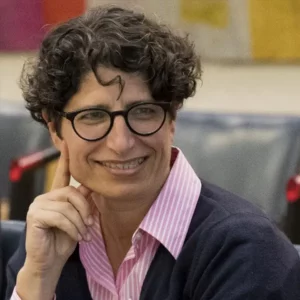
Gabi Calleja joined the CoE’s SOGI Unit as a Senior Policy Advisor in March 2023. She served as the Head of the SOGIGESC Unit within the Human Rights Directorate in Malta between June 2018 and February 2023. She served as the Chair of Malta’s LGBTIQ Consultative Council between 2015 and 2020. She was the Coordinator of the Malta LGBTIQ Rights Movement between 2007 and June 2018 and has been involved in advocacy work, legislation and policy development, strategic planning, training and capacity building, awareness raising and support to the LGBTIQ community since 2003. She served on the ILGA-Europe executive board between 2010 and 2014. She read for a Masters in Youth & Community Studies with the University of Malta.
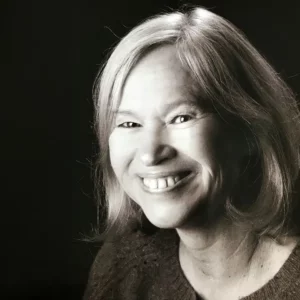
Assoc. Prof Mojca Urek, Ph.D. has worked at the University of Ljubljana, Faculty of Social Work since 1992. She was Chair of the Community Mental Health Department for 16 years and is currently Dean of the Faculty of Social Work. She has undertaken research on narrative approaches in social work, social perspectives on mental health, LGBT+ in social work and gender-based violence. Beside involvement in several national researches, she was the national lead in five European mental health projects with a strong training element on empowerment through education and employment, on participation of children with mental disabilities in taking decisions about their life, on inclusion of experiential knowledge in academia and services, on methods of overcoming prejudices and hetero- and cis-normativity practices in homes for older people through staff-training, and on combating violence against gender non-conforming children.
She is the author of the Slovenian monograph “Stories at work: narrating, recording and reporting in social work” and co-author of six other monographs on long-term care, innovation in care homes, violence against women in intimate relationships, changes of the family life in Slovenia and. In 2022, she co-edited a thematic issue of the journal Socialno delo (Social Work) entitled Strengthening social work to respond to the challenges of ageing in the LGBT+ community. She has co-authored several original research articles on LGBT+ ageing and co-edited the international monograph on LGBT+ children and youth.
She actively participated in deinstitutionalisation processes and mental health reforms in Slovenia. Together with her colleagues, she founded the Women’s Counselling Service in Ljubljana in the early 1990s implementing feminist social work in practice. She is current Chair of Research at the European Network for Training, Evaluation and Research in Mental Health.
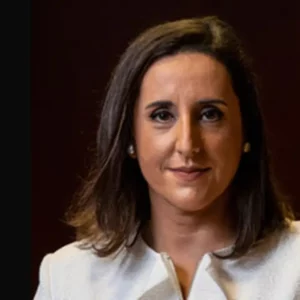
Rosa Monteiro holds a PhD in Sociology from the Faculty of Economics of the University of Coimbra and the Center for Social Studies. Prof. assistant at FEUC and researcher at CES. She was Secretary of State for Citizenship and Equality in the XXI and XXII Constitutional Government (2017-2022), with political responsibility and supervision in the areas of gender equality, prevention and combat of violence against women and domestic violence, LGBTI+ rights, trafficking of human beings, combating racism and racial discrimination, integration of Roma people, migration. In the last decade, she has focused her analysis in the field of equality and non-discrimination public policies, gender mainstreaming and official bodies for equality and non-discrimination. The common theme in her body of work is the analysis of gender issues, especially in the domains of work, employment, organizations and public policies. She developed research on: Femininity in the shopfloor: sexual identities construction in the workplace; the experience of motherhood of working women, Working Mothers facing the Intensive Mothering Model. In recent years she has focused her research on equality policies, gender mainstreaming and equality mechanisms; she participated in the evaluation of the II and III National Plan for Equality. She integrated the team that produced the evaluation of the Integration of Gender Perspectives in Structural Funds – QREN and FEDER. In her PhD dissertation, entitled “State Feminism in Portugal: mechanisms, strategies, policies and metamorphosis”, she developed a case study of the Portuguese main gender equality mechanism and its articulations with women movements and other political agents. She is also an expert adviser on several projects of equality plans in municipalities and NGO. She has several publications on these issues.
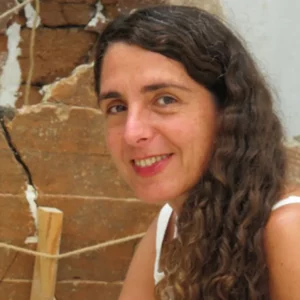
Venetia Kantsa is Professor of Anthropology and Director of the Laboratory of Family and Kinship Studies in the Department of Social Anthropology and History, University of the Aegean, Greece. She has conducted extensive fieldwork on women’s same-sex sexuality in Greece, the (in)visibility of same-sex desires, same-sex families, motherhood and new forms of parenthood, the summer lesbian community in Eresos and the history of the lesbian movement. She has also published extensively on kinship theory, gender epistemology and methodology, politics of sexuality and conceptualizations of citizenship. During the last years her research focuses on assisted reproduction, shifting conceptualizations of kinship and science, the distribution of authoritative knowledge in the context of emerging social and technological transformations, interrelations among medical technology, law and religion, and forms of relatedness among human and non-human entities. She was member of the international scientific network EastBordNet Cost Action (2008-2012), participated as national stakeholder into the FP7 research program Families and Societies (2013-2018), and as network member in the Changing (In)Fertilities research project funded by the Wellcome Trust and based in the Reproductive Sociology Research Group (ReproSoc) at the University of Cambridge (2018-2021). From 2012 to 2015 she was the Principal Investigator of the three-year long research project (In)FERCIT, “(In)Fertile Citizens: On the Concepts, Practices, Politics and Technologies of Assisted Reproduction in Greece”, co-funded by the European Union and Greek national funds. She is author or co-author of two books including Out of Body, Out of Home. Assisted Reproduction, Gender and Family in Greece (In-FERCIT, Alexandria 2015) and editor or co-editor of six books including (In)Fertile Citizens. Anthropological and Legal Challenges of Assisted Reproduction Technologies (In-FERCIT, Alexandria.
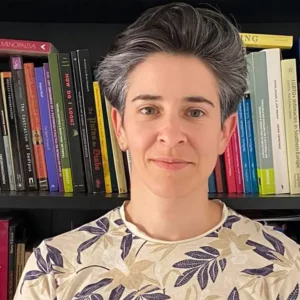
Ana Lúcia Santos has been conducting research at the Centre for Social Studies of the University of Coimbra since 2012. She has integrated research projects related to LGBTQ citizenship and disability-related projects. She is currently part of the Research Project REMEMBER – Experiences of LGBTQ Older People in Democratic Portugal (1974-2020). She holds a degree in Philosophy from the Faculty of Arts and Humanities of the University of Coimbra and a PhD in Feminist Studies from the same Faculty with a thesis on the regulation of sexually non-normative bodies in sport. Research areas: queer theory, crip theory, feminist studies, intersex studies, trans studies, philosophy, posthumanism, feminist biology. Besides her academic work, she has been involved in LGBTQI activism in Portugal in the past, having been one of the co-founders of the Anti-Homophobia and Transphobia Platform of Coimbra.

Ana Cristina Santos é Socióloga e Investigadora Principal com Habilitação em Estudos de Género no Centro de Estudos Sociais da Universidade de Coimbra. No CES-UC é Coordenadora da Linha Temática Democracia, Justiça e Direitos Humanos e Co-coordenadora do Grupo de Pesquisa em Sexualidades (GPS-CES). Tem publicado extensivamente e liderado uma série de projetos de investigação sobre temas LGBTQI+, corpo, cidadania íntima e envelhecimento queer, incluindo dois financiamentos atribuídos pelo European Research Council (Conselho Europeu de Investigação). Em 2021 foi eleita para o Comité Executivo da Associação Europeia de Sociologia, até 2024. Lidera atualmente três projetos de investigação: Infâncias Arco-Íris, financiado pela Comissão Europeia; REMEMBER, financiado pela FCT; e TRACE, centrado no envelhecimento de pessoas LGBTQ+ no Sul da Europa. Os seus livros mais recentes são: The SAGE Handbook of Global Sexualities (Sage, 2020); The Tenacity of the Couple Norm (UCL Press, Open Access, 2020); e LGBTQ+ Intimacies in Southern Europe: Citizenship, Care and Choice (Palgrave, Open Access, 2022).

Licenciada em Psicologia pela Universidade de Cagliari (IT) e investigadora júnior no Centro de Estudos Sociais da Universidade de Coimbra (CES). Mestre em Psicologia Clínica (2022), com uma dissertação intitulada “A Manosfera em Itália: análise crítica dos discursos sexistas em comunidades masculinas online”, uma investigação etnográfica e de análise crítica do discurso. Atualmente faz parte do projeto TRACE – Tracing Queer Citizenship over Time: Ageing, ageism and age-related LGBTI+ politics in Europe.

Investigadora em pós-doutoramento no projeto TRACE- Tracing Queer Citizenship over Time: Ageing, ageism and age-related LGBTI+ politics in Europe, no Centro de Estudos Sociais (CES) da Universidade de Coimbra. É licenciada em Antropologia, mestre em Biologia e Evolução Humanas e doutorada em Direitos Humanos nas Sociedades Contemporâneas pela Universidade de Coimbra, com uma tese intitulada “O Efeito Insular: experiências de pessoas LGBTQ através da lente do isolamento geográfico” – disponível em: https://estudogeral.uc.pt/handle/10316/109946. Em 2022/23 foi bolseira de investigação do projeto Multiversidade – Livro branco sobre discriminações múltiplas e interseccionais, promovido pela NOVA School of Law, Lisboa. É também investigadora associada do projeto REMEMBER- Vivências de pessoas LGBTQ Idosas no Portugal Democrático (1974-2020) e colaboradora do projeto Colourful Childhoods- Empowering LGBTIQ children in vulnerable contexts to combat gender-based violence across Europe, ambos no Centro de Estudos Sociais, Coimbra. Trabalha em estudos LGBTQ e Direitos Humanos, através de uma abordagem crítica e interseccional, com particular interesse de investigação na área das geografias das sexualidades, dos estudos sobre ilhas e estudos queer rurais.

Investigador em pós-doutoramento no projeto TRACE – Tracing Queer Citizenship over Time: Ageing, ageism and Age-related LGBTI+ Politics in Europe, no Centro de Estudos Sociais (CES), Universidade de Coimbra. É especialista em investigação interdisciplinar sobre estudos de género e sexualidade como antropólogo social, com foco na etnografia grega. A sua tese de doutoramento intitulada “BDSM practices, sexualities, socialities: Anthropological Approaches” apresenta uma rigorosa exploração etnográfica das redes sociais e sexuais BDSM na Grécia contemporânea. Durante a última década, conduziu investigação etnográfica sobre políticas de género e sexualidade relacionadas com a parentalidade entre pessoas do mesmo sexo e a utilização de novas tecnologias reprodutivas. Também explorou a intersecção das políticas do desejo com o ativismo e as teorias do parentesco queer e examinou formas de violência institucional no âmbito das políticas de asilo SOGI na Grécia. Publicou vários artigos em revistas científicas gregas e internacionais e contribuiu para diversos volumes neste domínio. Foi também co-editor, juntamente com a Doutora Eirini Avramopoulou, de uma coletânea científica intitulada “Sexuality’s Objects(ions):”. Teorias críticas e leituras interdisciplinares”, publicada em grego em 2022. É membro fundador da Associação de Antropólogos Sociais da Grécia.

Sociólogo e Investigador Júnior no Centro de Estudos Sociais da Universidade de Coimbra (CES). Mestre em Relações Internacionais – Estudos da Paz, Segurança e Desenvolvimento pela Faculdade de Economia da Universidade de Coimbra (2022), onde apresentou a dissertação intitulada “Utopias Reais Queer: Violências e Resistências num Mundo Heterocisnormativo”, e Licenciado em Sociologia (2019) pela mesma faculdade. É Gestor de Ciência no Projeto TRACE – Tracing Queer Citizenship over Time: Ageing, ageism and age-related LGBTI+ politics in Europe. Colaborou com o projeto REPLAY – As abordagens à paz e a (re)produção da violência em Moçambique (2022-2023) e com o projeto TIMES – Trajetórias institucionais e modelos de empresa social em Portugal (2019-2021). É investigador em colaboração com o projeto REMEMBER – Vivências de Pessoas LGBTQ Idosas no Portugal Democrático (1974-2020) e membro do Grupo de Pesquisa em Sexualidade no CES (GPS-CES). É cocoordenador da Secção Temática de Sexualidade e Género da Associação Portuguesa de Sociologia (APS). Os seus interesses de investigação incluem teorias, metodologias e estudos queer, estudos da paz e da violência, violências, resistências e organizações LGBTQIA+, e empresas sociais.

Desde que obteve o seu mestrado em Serviço Social, tem sido Professor assistente e Investigador na Faculdade de Serviço Social da Universidade de Liubliana, Eslovénia. Os seus interesses de investigação incluem o trabalho social em organizações de saúde, a identidade profissional dos assistentes sociais, a colaboração interprofissional e os estudos LGBTI+. Os seus trabalhos anteriores incluem publicações de revisões sistemáticas sobre tópicos relacionados com idosos LGBTI+, incluindo o conceito de resiliência e os efeitos da formação em profissionais sociais e de saúde que prestam cuidados a idosos LGBTI+. Anteriormente, colaborou em dois projectos europeus LGBTI+: Diversity and Childhood: Changing social attitudes towards gender diversity in children across Europe e Best practices for Care and Wellbeing Education to support the needs of LGBT people as they age – BEING ME.

Andrew King é Professor de Sociologia na Universidade de Surrey, Reino Unido, e co-diretor do “Centro de Investigação sobre o Envelhecimento e as Gerações” (CRAG), do “Grupo de Investigação sobre Sexo, Género e Sexualidades” (SGS) e co-diretor fundador do novo Centro de Excelência sobre o Envelhecimento de Surrey. É um perito em envelhecimento LGBTQ+. Os seus livros incluem: Older Lesbian, Gay and Bisexual Adults: Identities, Intersections and Institutions (Routledge 2016), Older LGBT People: Minding the Knowledge Gaps (Routledge, 2018) e Intersections of Ageing, Gender and Sexualities: Multidisciplinary International Perspectives (Policy Press, 2019). Andrew é especialista em habitação entre pessoas LGBTQ+ e criou o primeiro quadro nacional de igualdade LGBTQ+ de habitação social do Reino Unido, o HousePoud Pledge Scheme. Andrew edita atualmente as revistas Ageing and Society e Sociology e é “insight expert” do International Longevity Centre.

Diego Lasio é doutorado em Psicologia pelo ISCTE – Instituto Universitário de Lisboa, Portugal. É mestre em Psicologia pela Universidade de Cagliari (Itália) e especializou-se em Psicoterapia Sistémico-Relacional na Academia de Psicoterapia Familiar de Roma (Itália). Trabalha na Universidade de Cagliari (Itália) onde ensina Psicologia das Relações Familiares e Género, Sexualidade e Interseccionalidade. A sua investigação centra-se na construção discursiva do género e da sexualidade, analisando as práticas sociais relacionadas com a marginalização e a discriminação.

Gabi Calleja faz parte da Unidade SOGI do Conselho da Europa como Conselheira Política Sénior desde março de 2023. Foi chefe da Unidade SOGIGESC da Direção dos Direitos Humanos em Malta entre junho de 2018 e fevereiro de 2023. Foi presidente do Conselho Consultivo LGBTIQ de Malta entre 2015 e 2020. Foi coordenadora do Movimento dos Direitos LGBTIQ de Malta entre 2007 e junho de 2018 e tem estado envolvida em trabalhos de defesa, desenvolvimento de legislação e políticas, planeamento estratégico, formação e reforço de capacidades, sensibilização e apoio à comunidade LGBTIQ desde 2003. Foi membro do conselho executivo da ILGA-Europa entre 2010 e 2014. Fez um mestrado em Youth & Community Studies na Universidade de Malta.

Mojca Urek, Ph.D., Professora Associada, trabalha na Universidade de Liubliana, Faculdade de Serviço Social, desde 1992. Foi Presidente do Departamento de Saúde Mental Comunitária durante 16 anos e é atualmente Diretora da Faculdade de Serviço Social. Realizou investigação sobre abordagens narrativas no trabalho social, perspetivas sociais sobre saúde mental, LGBT+ no trabalho social e violência baseada no género. Para além do envolvimento em várias investigações nacionais, foi a líder nacional em cinco projetos europeus de saúde mental com um forte elemento de formação sobre capacitação através da educação e do emprego, sobre a participação de crianças com deficiências mentais na tomada de decisões sobre a sua vida, sobre a inclusão de conhecimentos experienciais na academia e nos serviços, sobre métodos de superação de preconceitos e práticas de hetero- e cis-normatividade em lares de idosos através da formação de pessoal e sobre o combate à violência contra crianças não conformes com o género
É autora da monografia eslovena “Histórias no trabalho: narrar, registar e relatar no trabalho social” e coautora de seis outras monografias sobre cuidados de longa duração, inovação em lares de idosos, violência contra as mulheres nas relações íntimas, mudanças na vida familiar na Eslovénia e. Em 2022, foi co-editora de uma edição temática da revista Socialno delo (Trabalho Social) intitulada Strengthening social work to respond to the challenges of ageing in the LGBT+ community (Reforçar o trabalho social para responder aos desafios do envelhecimento na comunidade LGBT+). Foi coautora de vários artigos de investigação originais sobre o envelhecimento LGBT+ e co-editou a monografia internacional sobre crianças e jovens LGBT+.
Participou ativamente nos processos de desinstitucionalização e nas reformas da saúde mental na Eslovénia. Juntamente com os seus colegas, fundou o Serviço de Aconselhamento para Mulheres em Liubliana no início da década de 1990, implementando o trabalho social feminista na prática. É atualmente Presidente do Departamento de Investigação da Rede Europeia de Formação, Avaliação e Investigação em Saúde Mental.

Doutorada em Sociologia pela Faculdade de Economia da Universidade de Coimbra e pelo Centro de Estudos Sociais. Professora auxiliar da FEUC e investigadora do CES. Foi Secretária de Estado para a Cidadania e a Igualdade no XXI e XXII Governo Constitucional (2017-2022), com responsabilidade política e tutela nas áreas da igualdade de género, prevenção e combate à violência contra as mulheres e violência doméstica, direitos LGBTI+, tráfico de seres humanos, combate ao racismo e à discriminação racial, integração das pessoas ciganas, migrações. Na última década, tem centrado a sua análise no domínio das políticas públicas de igualdade e não discriminação, da integração da perspetiva de género e dos organismos oficiais para a igualdade e não discriminação. O tema comum no seu corpo de trabalho é a análise das questões de género, especialmente nos domínios do trabalho, emprego, organizações e políticas públicas. Desenvolveu investigação sobre: Feminilidade no chão de fábrica: construção de identidades sexuais no local de trabalho; a experiência da maternidade de mulheres trabalhadoras, Mães Trabalhadoras face ao Modelo de Maternidade Intensiva. Nos últimos anos tem centrado a sua investigação nas políticas de igualdade, integração da perspetiva de género e mecanismos de igualdade; participou na avaliação do II e III Plano Nacional para a Igualdade. Integrou a equipa que produziu a avaliação da Integração da Perspetiva de Género nos Fundos Estruturais – QREN e FEDER. Na sua dissertação de doutoramento, intitulada “Feminismo de Estado em Portugal: mecanismos, estratégias, políticas e metamorfoses”, desenvolveu um estudo de caso do principal mecanismo português para a igualdade de género e das suas articulações com os movimentos de mulheres e outros agentes políticos. É também consultora especializada em vários projetos de planos de igualdade em municípios e ONG. Tem várias publicações sobre estas temáticas.

Venetia Kantsa é Professora de Antropologia e Diretora do Laboratório de Estudos da Família e do Parentesco no Departamento de Antropologia Social e História da Universidade do Egeu, Grécia. Realizou um extenso trabalho de campo sobre a sexualidade das mulheres do mesmo sexo na Grécia, a (in)visibilidade dos desejos do mesmo sexo, as famílias do mesmo sexo, a maternidade e as novas formas de parentalidade, a comunidade lésbica de verão em Eresos e a história do movimento lésbico. Também publicou extensivamente sobre teoria do parentesco, epistemologia e metodologia do género, políticas da sexualidade e conceptualizações da cidadania. Nos últimos anos, a sua investigação centrou-se na reprodução assistida, na mudança de conceptualizações de parentesco e ciência, na distribuição de conhecimento autorizado no contexto de transformações sociais e tecnológicas emergentes, nas inter-relações entre tecnologia médica, direito e religião e nas formas de relação entre entidades humanas e não humanas. Foi membro da rede científica internacional EastBordNet Cost Action (2008-2012), participou como parte interessada nacional no programa de investigação FP7 Families and Societies (2013-2018), e como membro da rede no projeto de investigação Changing (In)Fertilities financiado pelo Wellcome Trust e baseado no Reproductive Sociology Research Group (ReproSoc) na Universidade de Cambridge (2018-2021). De 2012 a 2015 foi a Investigadora Principal do projeto de investigação de três anos (In)FERCIT, “(In)Fertile Citizens: On the Concepts, Practices, Politics and Technologies of Assisted Reproduction in Greece”, cofinanciado pela União Europeia e por fundos nacionais gregos. É autora ou coautora de dois livros, incluindo Out of Body, Out of Home. Assisted Reproduction, Gender and Family in Greece (In-FERCIT, Alexandria 2015) e editora ou co-editora de seis livros, incluindo (In)Fertile Citizens. Anthropological and Legal Challenges of Assisted Reproduction Technologies (In-FERCIT, Alexandria.

Ana Lúcia Santos desenvolve investigação no Centro de Estudos Sociais da Universidade de Coimbra desde 2012. Integrou projetos de investigação relacionados com cidadania LGBTQ e relacionados com deficiência. Atualmente integra o Projeto de Investigação REMEMBER – Vivências de Pessoas LGBTQ Idosas no Portugal Democrático (1974-2020). É licenciada em Filosofia pela Faculdade de Letras da Universidade de Coimbra e doutora em Estudos Feministas pela mesma Faculdade com uma tese sobre regulação de corpos sexualmente não normativos no desporto. Linhas de investigação: teoria queer, teoria crip, estudos feministas, estudos intersexo, estudos trans, filosofia, pós-humanismo, biologia feminista. Para além do trabalho académico, esteve no passado envolvida no ativismo LGBTQI em Portugal, tendo sido uma das co-fundadoras da Plataforma Anti-Homofobia e Transfobia de Coimbra.